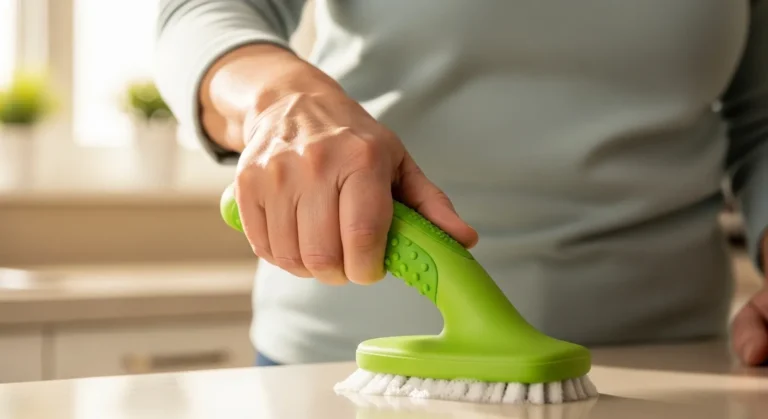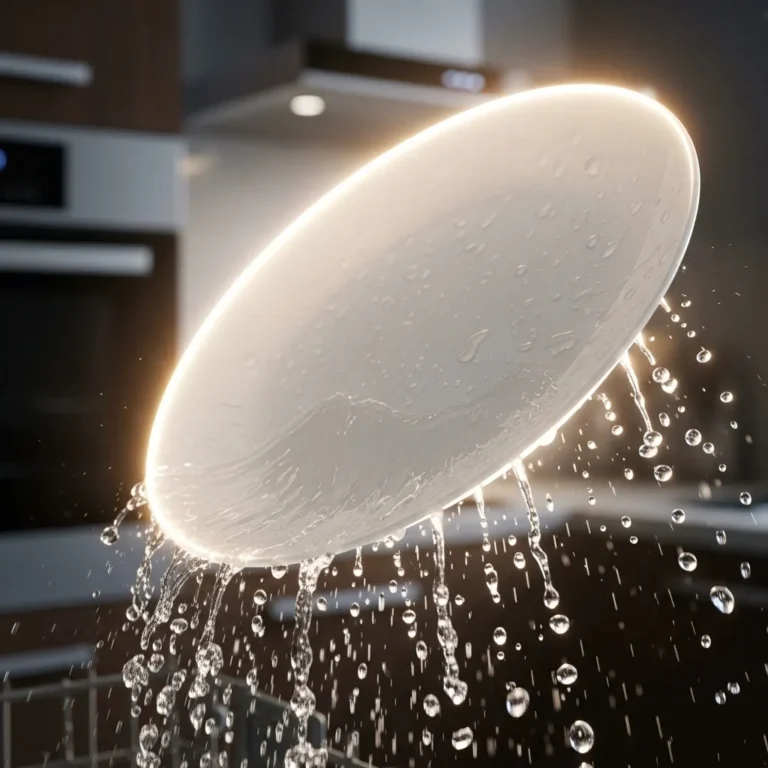
The First Line of Defense: Proactive Kitchen Cleaning
The single most important step in natural pest control is maintaining a clean kitchen. Pests are simple creatures; they are looking for food, water, and shelter. When you remove these three things, you remove their reason for being there. A consistent cleaning routine is not just about appearances—it’s your primary tool for pest prevention. Think of it as rolling up the welcome mat for ants, roaches, and flies.
A sparkling kitchen can seem like a daunting task, but breaking it down into small, manageable daily and weekly habits makes it easy. The goal is not perfection, but consistency. Even a few minutes a day makes a world of difference.
Your 15-Minute Daily Kitchen Reset
At the end of each day, or after the last meal, perform this quick reset. It disrupts the nightly feeding cycle for many pests, particularly cockroaches and ants, who are often most active after you’ve gone to bed.
Step 1: Clear the Counters. Put away all food items. Wipe down counters with a damp cloth to remove crumbs and sticky spots. For a simple and effective cleaner, you can use a solution of warm water with a squirt of mild dish soap. Be sure to wipe up all moisture afterward, as standing water can attract pests.
Step 2: Address the Dishes. Wash dishes immediately after use, or at the very least, rinse them well and place them in the dishwasher. Food particles left on plates in the sink are an open invitation for pests. Running the dishwasher at night is a great habit to adopt.
Step 3: Sweep or Vacuum the Floor. Crumbs and tiny food morsels inevitably fall to the floor. A quick sweep or pass with a lightweight vacuum, especially around the stove, refrigerator, and eating areas, removes this easy food source.
Step 4: Wipe Up Spills. Check the stovetop, microwave, and floor for any spills from the day’s cooking. Grease splatters are a favorite for cockroaches, so paying special attention to the area around your stove is crucial.
Step 5: Manage the Trash. Ensure your kitchen trash can has a tight-fitting lid. If the bag is full, take it out before you go to bed. Lingering food smells from an open or overflowing trash bin are a powerful attractant for all sorts of pests.
Your Weekly Deepening Clean
Once a week, dedicate a little extra time to go beyond the daily reset. This helps eliminate the more hidden sources of food and grime that pests can find.
Wipe Down Appliance Exteriors: Use a damp microfiber cloth to wipe the outside of your refrigerator (including the handle and gasket seals), microwave, dishwasher, and stove. Pay attention to the control panels where greasy fingerprints can accumulate.
Clean the Sink and Drain: Scrub your sink basin thoroughly. To help clear out any gunk in the drain that might attract fruit flies or drain flies, you can pour a half-cup of baking soda down the drain, followed by a half-cup of white vinegar. Let it fizz for 10-15 minutes, then flush with hot water. A critical safety note: Never mix vinegar with bleach, as this creates toxic chlorine gas. The baking soda and vinegar reaction is safe and effective for minor drain cleaning.
Mop the Floor: A thorough mopping, especially under the edges of cabinets and appliances, removes the sticky residues that sweeping can miss. Use a floor cleaner that is appropriate for your surface type. A simple solution of a gallon of warm water with a quarter-cup of white vinegar works well on many floor types, but avoid it on natural stone like marble or travertine and some waxed hardwood finishes, as the acid can cause damage.
Check the Pantry: Quickly scan pantry shelves for any spills from sugar bags, flour, or cereal boxes. Wipe them up immediately. This is also a good time to check for any food items that are past their prime.
By making this proactive kitchen cleaning routine a habit, you create an environment where pests simply can’t thrive. You are removing their lifeline, which is far more effective than dealing with them after they’ve already settled in.

















